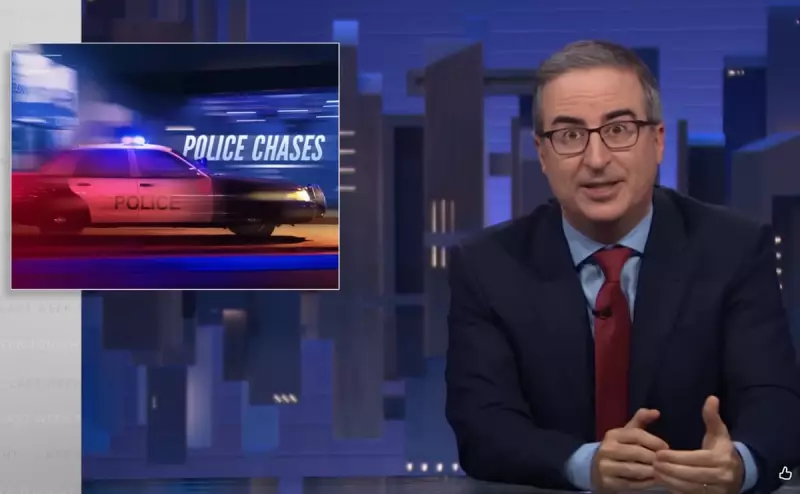
In a hard-hitting segment that's sending shockwaves through law enforcement circles, John Oliver's Last Week Tonight has turned its investigative spotlight on the alarming reality of police pursuits across Britain. The show's exhaustive research reveals a disturbing pattern of routine chases escalating into deadly incidents that claim innocent lives.
The Human Cost of High-Speed Pursuits
Oliver presented compelling evidence showing that what many perceive as dramatic television moments are actually creating real-world tragedies on British roads. The programme highlighted how minor traffic violations frequently trigger dangerous high-speed chases that result in catastrophic consequences for bystanders and drivers alike.
"We've become conditioned to seeing police chases as entertainment on reality TV shows," Oliver noted, "but the reality is far from entertaining when you examine the collateral damage."
Questioning Police Protocol and Public Safety
The investigation raised serious questions about whether current police pursuit protocols adequately balance law enforcement objectives with public safety. Disturbing statistics revealed that a significant percentage of pursuits begin for relatively minor infractions, yet end in devastating outcomes.
Oliver's team examined numerous case studies where routine traffic stops escalated into deadly situations, leaving families devastated and communities questioning whether the chase was worth the ultimate price.
The Alternatives: Smarter Policing Solutions
Rather than abandoning pursuit protocols entirely, the segment explored innovative alternatives being implemented by forward-thinking police forces. These include:
- Enhanced risk assessment procedures before initiating pursuits
- Strategic deployment of tyre-deflation devices
- Increased use of helicopter tracking for safer monitoring
- Implementation of GPS tracking technology
A Call for Accountability and Reform
The most powerful moments came from interviews with families who lost loved ones in pursuit-related incidents. Their heartbreaking stories highlighted the urgent need for comprehensive review of pursuit policies and greater accountability when operations go wrong.
Oliver challenged the notion that dangerous pursuits are an unavoidable aspect of modern policing, pointing to jurisdictions that have successfully implemented reforms without compromising public safety.
As the segment concluded, it left viewers with a crucial question: When does the determination to catch a suspect outweigh the responsibility to protect innocent lives? The answer, suggests Oliver's investigation, might require Britain to fundamentally rethink its approach to police pursuits.





